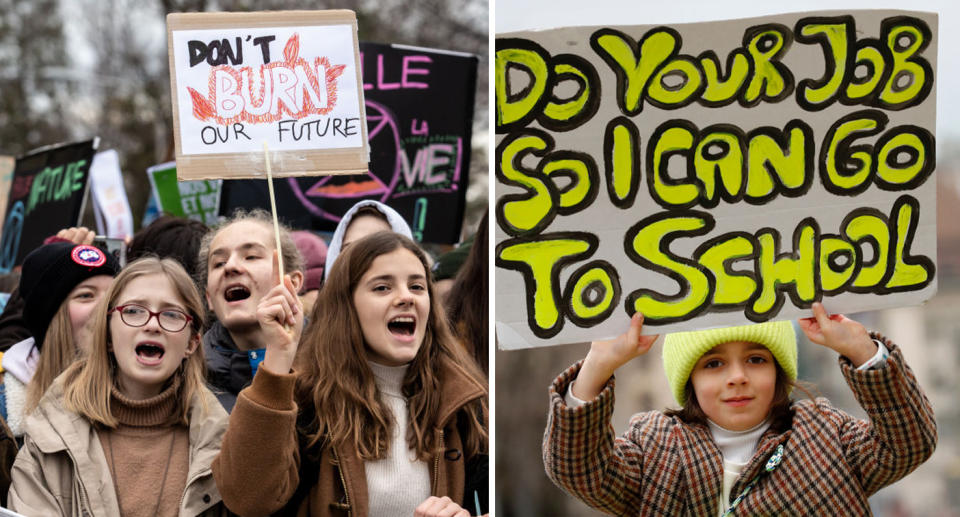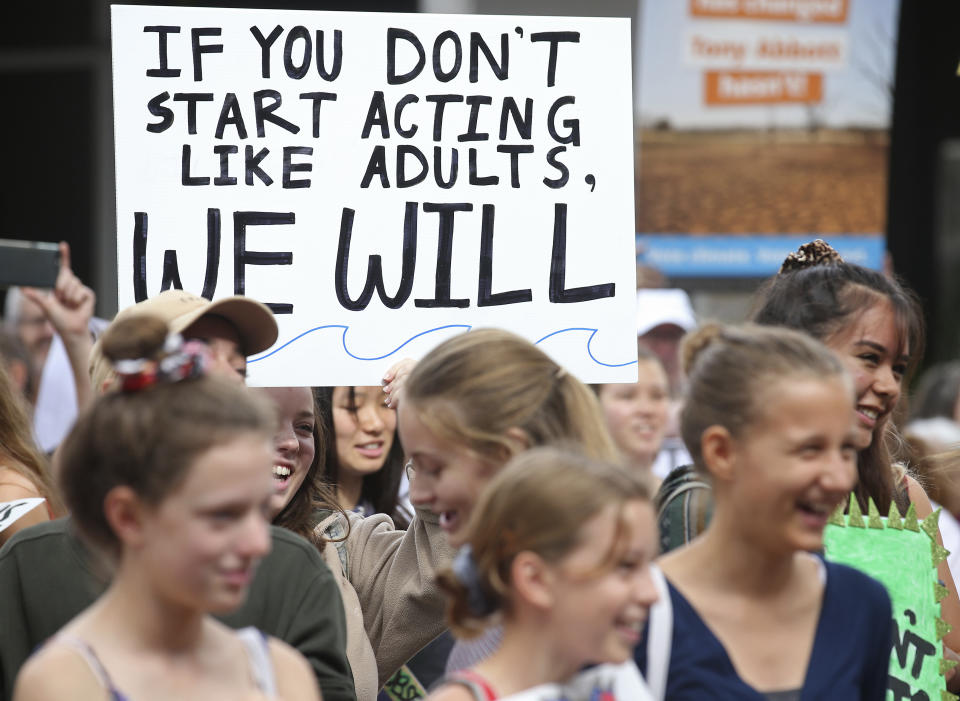'Environmental doom': The growing concern over 'eco-anxiety' in kids
From extensive news coverage of climate change to social media or even living in a bushfire-affected area, there’s no escaping the grim reality which has gripped Australia over the past few months, so it’s understandable the broader community is deeply concerned about the environment.
While experts have warned of climate change for decades, the reality of global warming has taken on a strangely controversial and politically-charged nature in recent years.
With the federal government accused of kicking the can down the road on climate action, there is growing concern among young Australians about the worst case scenarios of global warming.
The term ‘eco-anxiety’ popped up in the media quite a bit last year, but Dr Ella Oar, from Macquarie University, says she’s seen the term used in academic papers as far back as 2011.
Dr Oar admits ‘eco-anxiety’ is a relatively new concept, with little research surrounding it, which means it’s not yet possible to pin point how widespread it is, nor can it be officially diagnosed, however with anxiety being her area of expertise she’s eager to look into it.

‘Chronic fear of environmental doom’
Anxiety is a normal emotion, Dr Oar explains, adding it can be a helpful emotion especially when we are faced with a threat, such as climate change.
“When we’re faced with a real threat it’s helpful to experience anxiety, it can make us productive, it makes us take action,” Dr Oar told Yahoo News Australia.
“So if we didn’t have level of anxiety, we probably wouldn’t bother using a keep cup. Low levels of anxiety are helpful, they make us take action.”
However, Dr Oar warns too much anxiety is a problem, especially when issues like climate change are keeping you up of a night time and it affects daily life.
Despite it not being a diagnosable condition, Dr Oar recognises the term describes anxiety relating to the natural environment.
“The American Psychological Association have defined it as ‘chronic fear of environmental doom’,” Dr Oar says.
“We know that people are concerned about the environment, and you can see that,” she says, pointing out the school strikes which happened all over the world, calling for action against climate change.

While it is easy for people to feel helpless when it comes to climate change, it eco-anxiety is not just experienced by those who have been directly affected be climate change.
She says more people are reporting concerns for the environment, and those who have a predisposition to anxiety could be more prone to have anxiety around climate change, or the destruction of the natural environment.
Among those expressing distress about the environment, are younger people, and as children file back into classrooms in coming weeks, parents and teachers will surely be faced with difficult questions, especially after bushfires have devastated the country over the summer holidays.
'It's code': Aussie newspaper breaks rank with unlikely front page
'I could have handled it better': Scott Morrison's bushfire admission amid crisis
Climate activists hit out at bushfire 'scare tactic' ahead of protests
How to help children with eco-anxiety
“Disasters are going to occur everywhere in the world now,” Professor Marjory Ebbeck from the University of South Australia told Yahoo News Australia.
“353 million children are living in these situations across the world. It’s no good us saying we’re insulated or isolated, because this [the bushfire crisis] has shown Australia isn’t.
“We’re not in conflict like some other countries, but this ecological disaster that has occurred is so significant, though we do need to start explaining to children and helping them over time understand part of that responsibility.”

Professor Ebbeck specialises in early childhood education, and she says teachers are well-equipped to answer the difficult questions children might have as they start a new school year.
“I think that the teacher does need to deal with it, I think they have the skills to break things down,” Professor Ebbeck told Yahoo News Australia.
“They don’t need to answer in complex ways, but they need to say that change is happening.”
However, it’s not just teachers who will be faced with hard questions. Dr Oar recommends letting children lead the discussion, if they are expressing concerns for the environment.
“I think it’s important to not minimise the threat [of climate change],” Dr Oar says.
“But at the same time you don’t want to exaggerate it. It’s finding the balance of giving them simple, honest, age appropriate answers.
“I think for children it can be overwhelming and [them] thinking there’s a catastrophe coming. You need to make it really clear to children there are things they can do.”

Professor Ebbeck said following the bushfire crisis it is the job of the teacher to make the discussion digestible, and talk to children about the environment in the classroom.
“There is a level the teacher can tune into,” Professor Ebbeck said, pointing out even young children can be educated by their parents or teacher on caring for the environment by not littering or caring for animals.
“It lays the basis for building on that, so we’re all doing whatever we can now to make sure these terribly traumatic events don’t occur to this catastrophic level.”
Professor Ebbeck says when teachers talk to children about ecological issues, whether it be the bushfires, or the effects of climate change, it needs to be in context and have it part of the curriculum.
Pointing out many children have an interest in animals, it could be worthwhile teaching kids about endangered species and teaching children what they can do to help our native wildlife.
Do you have a story tip? Email: newsroomau@yahoonews.com.
You can also follow us on Facebook, Instagram and Twitter and download the Yahoo News app from the App Store or Google Play.



